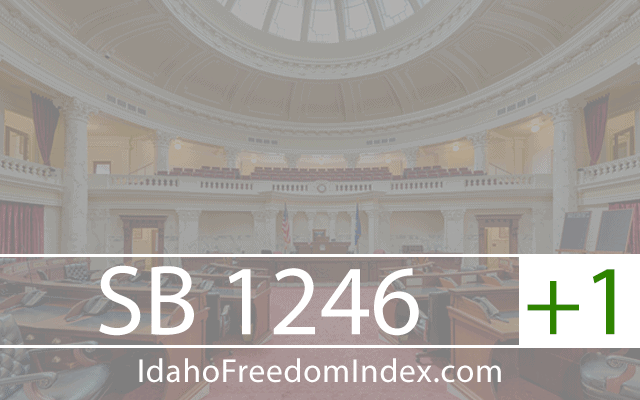


Bill description: SB 1246 would cap all payments for healthcare services provided to prison inmates at an amount no higher than Medicaid reimbursement rates. The cap would apply to payments made by third parties to subcontractors.
Rating: +1
Does it increase government spending (for objectionable purposes) or debt? Conversely, does it decrease government spending or debt?
Under the Eighth Amendment to the U.S. Constitution, which prohibits cruel and unusual punishments, Idaho is required to provide for the health needs of inmates within its state prisons. The state has the capacity to provide for many of the medical needs within the state correctional facilities. In the instances where the state does not have the capacity to provide appropriate procedures, the procedures are outsourced to external facilities, and the state reimburses the medical providers for their services.
SB 1246 would reduce the amount the state spends on healthcare services for prison inmates, by capping the amount paid for services provided outside of state prison facilities. Currently, when payments are made directly from the state Board of Corrections to a health service provider the cap is set at the Medicaid reimbursement rate.
For many of its healthcare needs, however, the department contracts with a private third party, which subcontracts the work to another party. This side-steps the cap and has led the department to pay more for these services. The Fiscal Note for SB 1246 estimates that this costs the state $2 million annually.
By adding the cap to any payments made by the private third party, SB 1246 could save the state Department of Corrections this sum of $2 million annually and could ensure it is not overpaying for services.
(+1)
This analysis reflects the House amendments to the bill on 3/20.


